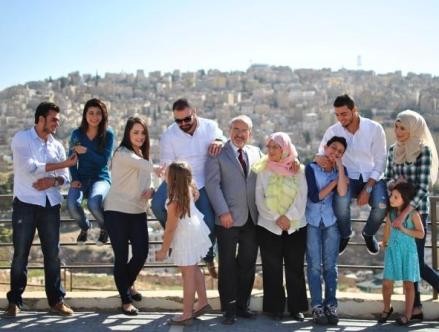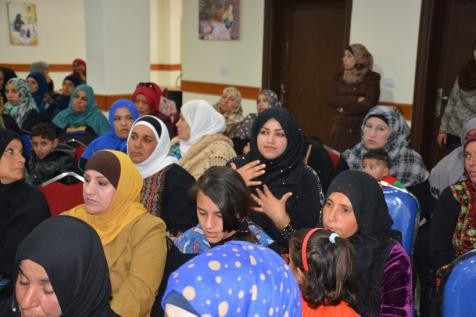Speeches Shim
Background

The Jordan Communication, Advocacy and Policy (J-CAP) activity is a five-year (2014-2019) USAID-funded activity that works to increase demand for family planning and reproductive health (FP/RH) services. This is accomplished by implementing social and behavior change communication interventions and enabling a more supportive policy environment. This will help ensure a healthy future for Jordanian families and progress toward Jordan’s national development goals.
Project overview
Working with the Higher Population Council, the Ministry of Health, and other governmental and non-governmental partners, J-CAP adopts evidence-based approaches to enhance the policy environment under which FP/RH services are delivered. J-CAP also addresses long-standing barriers to family planning through innovative social and behavior change strategies tailored to a Jordanian context. Research serves as the foundation of these innovative interventions, emphasizing the principles of participation, transparency, and most importantly, data reliability and accuracy.
J-CAP’s ultimate beneficiary is the Jordanian family, including each family member’s health, well-being and socio-economic prosperity. Key audiences include Jordanian women, their husbands, young adults, Syrian refugees, and stakeholders who have influence on fertility behaviors, norms and goals.
J-CAP interventions emphasize the integration of female empowerment and male engagement. The activity also aims to increase youth involvement and outreach to host communities of Syrian refugees living outside camps throughout the country. J-CAP supports the Jordan National Reproductive Health and Family Planning Strategy (2013-2017).
Activities

In partnership with counterparts and local partners, J-CAP works to:
Increase demand for FP/RH services through:
- Supporting civil society institutions by building their technical and institutional capacity to plan and implement social and behavior change communication and advocacy activities at the grassroots level
- Expanding community outreach to provide household FP/RH counseling visits and referral services
- Designing and executing multi-channel communication campaigns to shift social norms and to promote the use of modern FP methods
- Leveraging the use of social media, web and mobile communications
Improve capacity and create an enabling FP/RH environment by:
- Mobilizing leaders and advocates from the community and building their capacity to support family planning issues
- Supporting advocacy and policy initiatives in the Higher Population Council, Ministry of Health and civil society organizations
- Optimizing the use of Resources for the Awareness of Population Impacts on Development (RAPID) as tools to build understanding of the positive impact of balanced population growth on the country’s natural, social and economic resources
- Supporting the Family Planning Coalition to implement non-governmental advocacy initiatives
EXPECTED OUTPUTS
The project will focus on the following key areas in its first year:
- Developing and implementing national FP campaigns to change social norms and individual behaviors around modern FP method use
- Designing and implementing a grants program to support civil society organizations to effectively promote FP/RH
- Continuing to implement and improve community outreach
- Leveraging social media, web and mobile communication to support social behavior change communication campaigns in reaching key audiences, especially youth
- Building the capacity of advocates and local institutions at the country, government and community levels
- Supporting the Higher Population Council and Ministry of Health (MOH) advocacy and policy initiatives related to population and FP/RH
- Optimizing the use of RAPID presentations and relevant policy tools
- Developing MOH capacity to advocate for FP use
- Supporting the FP Coalition to implement non-governmental advocacy initiatives
- Expanding media advocacy for population and family planning issues

Comment
Make a general inquiry or suggest an improvement.